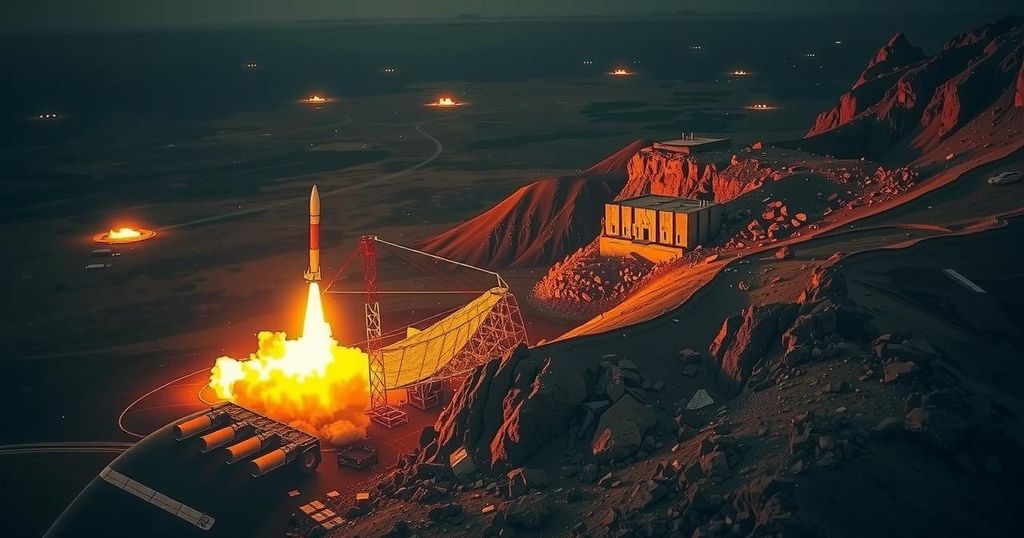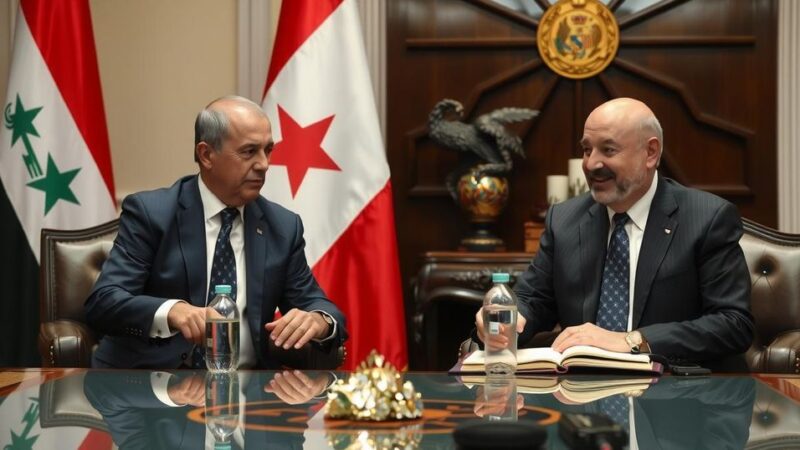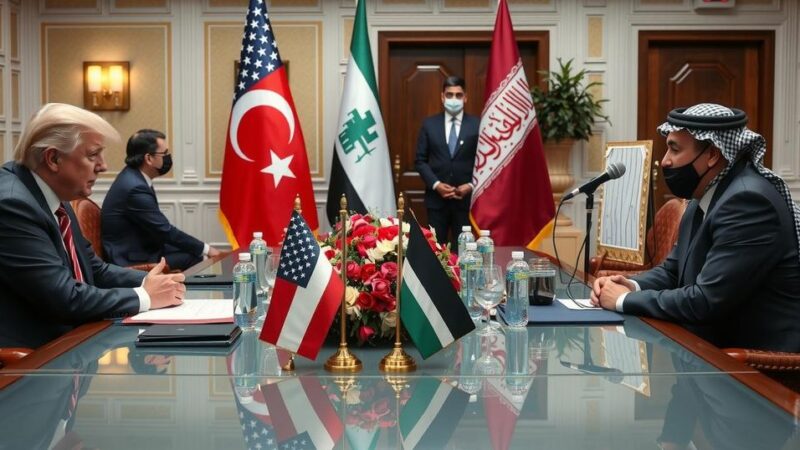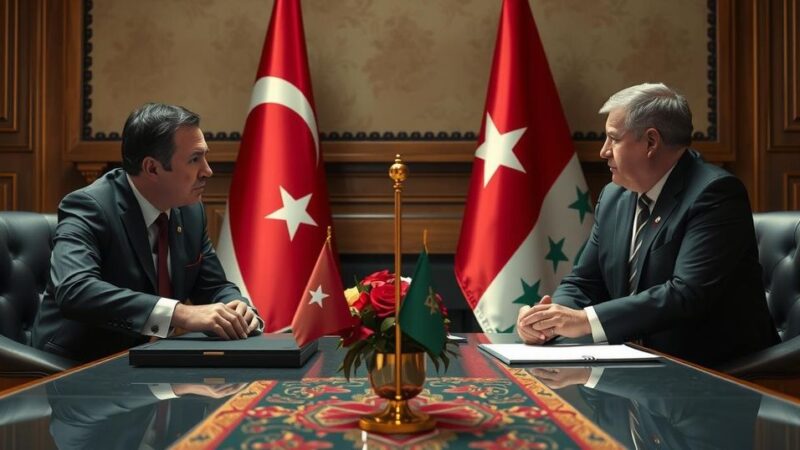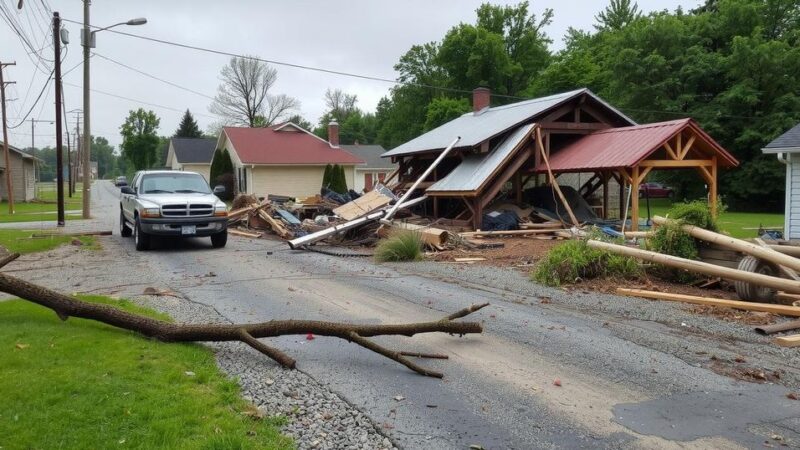On October 30, 2024, lethal rocket fire from Lebanon resulted in the deaths of five individuals in northern Israel, the deadliest incident since Israel’s invasion earlier this month. The attacked coincided with U.S. diplomatic efforts for ceasefires in the region, amid ongoing hostilities involving Hezbollah and escalating death tolls on both sides.
On Thursday, rocket fire from Lebanon resulted in five fatalities in northern Israel, marking the most lethal incident since Israel commenced its military operation earlier this month. Among the deceased were four foreign workers. This assault coincided with the presence of senior U.S. diplomats in the region who aimed to facilitate ceasefire negotiations in Lebanon and Gaza amid escalating Middle Eastern conflicts. Hezbollah has actively engaged in launching rockets, drones, and missiles into Israeli territory since the onset of war following Hamas’ attack on October 7, 2023. As allies supported by Iran, Hezbollah and Hamas have exacerbated regional tensions. The conflict escalated significantly after Israel undertook extensive airstrikes across Lebanon, resulting in the deaths of Hezbollah’s key leadership, including their top commander, Hassan Nasrallah, at the beginning of this month. The Metula regional council reported the attacks Thursday, though specifics regarding the types of munitions used were not disclosed. The identities of the victims were also not immediately revealed. Metula, situated in Israel’s northernmost region and encircled by Lebanon, has sustained significant damage due to rocket fire, prompting a mass evacuation of its residents in October 2023, leaving only security personnel and essential agricultural workers. Advocacy groups have criticized the government for compromising the safety of foreign workers by permitting their presence in perilous areas without adequate protection measures. Sheikh Naim Kassem, the newly appointed leader of Hezbollah, stated in a video message that his group intends to continue its military actions against Israel until it receives a ceasefire proposal that meets its expectations. He emphasized the group’s resilience, asserting that Hezbollah’s capabilities remain fully operational despite previous challenges, including recent attacks attributed to Israel. In an exacerbation of hostilities, the Israeli military issued evacuation orders for more southern Lebanese areas amidst airstrikes that reportedly resulted in eight fatalities according to Lebanon’s National News Agency. Israel has previously warned civilians to vacate wide regions across the country, which includes major southern and eastern urban centers. As of now, over 2,800 individuals have lost their lives and approximately 13,000 have sustained injuries since the conflict erupted last year in Lebanon, with around 1.2 million people displaced. Conversely, Israeli casualties from Hezbollah assault have amounted to at least 68, a considerable number of whom are military personnel. Additionally, over 60,000 Israeli residents from border towns have faced prolonged evacuations.
The article discusses the ongoing conflict between Israel and Hezbollah, which has intensified significantly since the onset of war in October 2023, following a Hamas attack that escalated the Middle East tensions. The recent rocket fire from Lebanon showcases the lethal impact of this conflict, underscoring the extensive human costs involved, particularly on foreign workers and residents in northern Israel. This situation is indicative of the broader geopolitical complexities involving U.S. diplomacy aimed at achieving ceasefires in the region, particularly amidst the growing humanitarian crisis in Lebanon and Israel. The reciprocal hostilities between these factions illustrate the entrenched nature of their rivalry, complicated by external influences from global powers, particularly Iran’s backing of Hezbollah and Hamas.
In conclusion, the tragic rocket fire from Lebanon resulting in five deaths in northern Israel highlights the severe ramifications of the ongoing conflict, which dates back to the events of October 2023. The situation underscores the urgent need for diplomatic interventions to negotiate ceasefires and mitigate further violence, as both Lebanon and Israel suffer substantial casualties, injuries, and displacements. As regional and global stakeholders search for resolutions to the conflict, this attack marks a critical juncture in the hostilities that could influence future diplomatic efforts and regional stability.
Original Source: apnews.com

